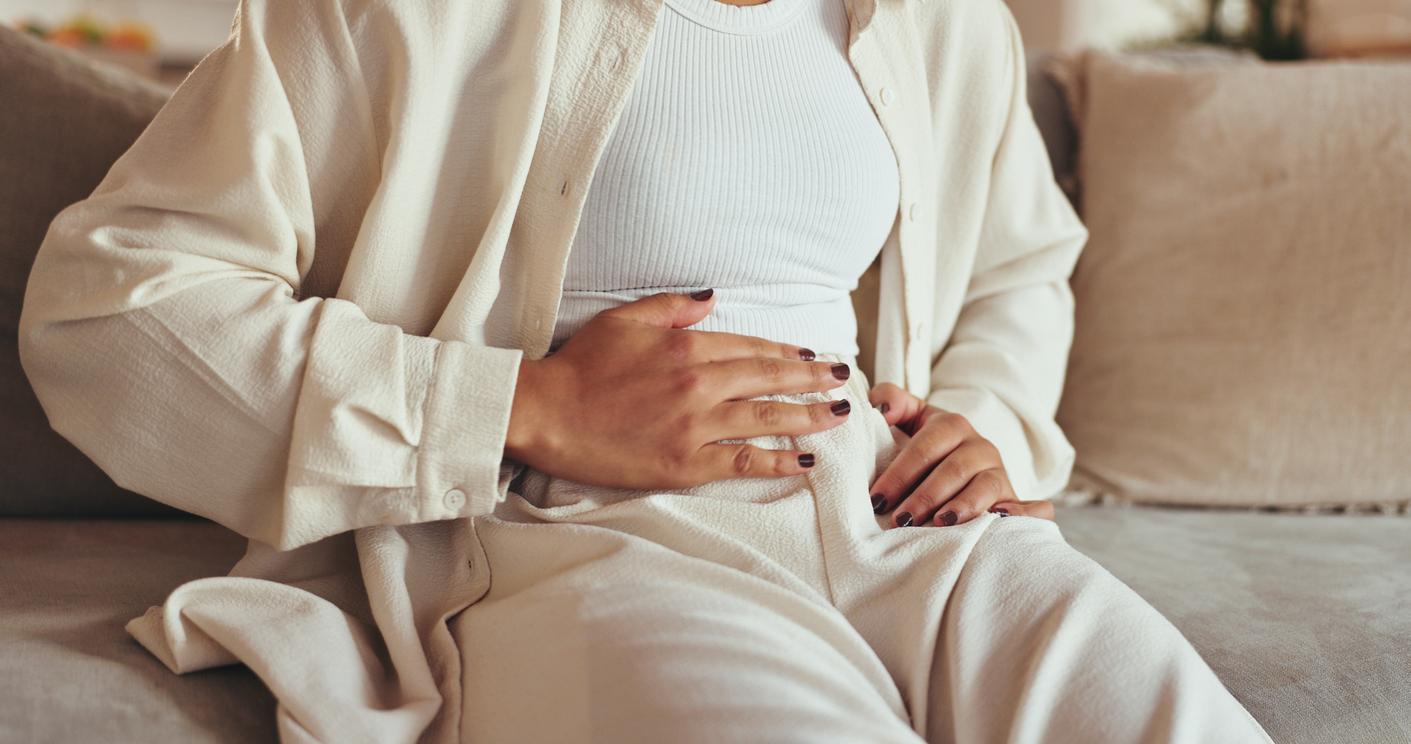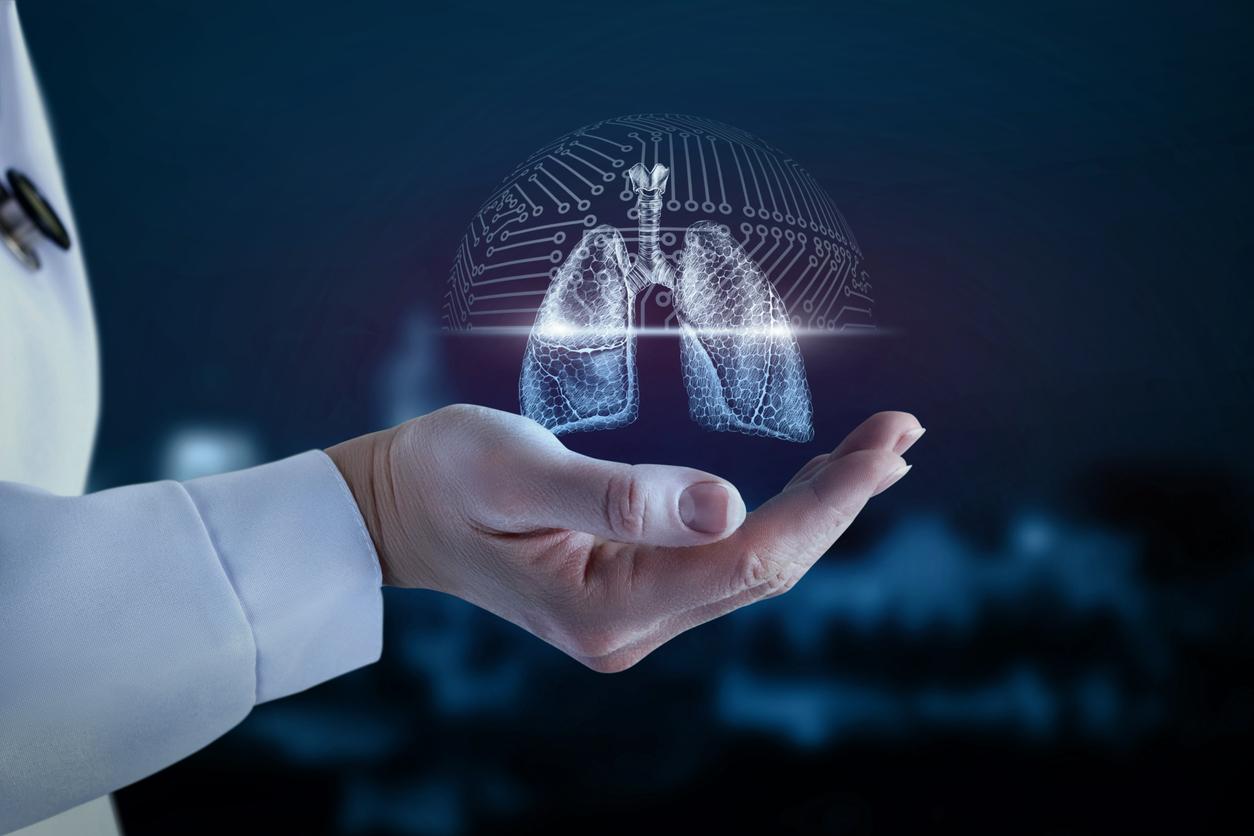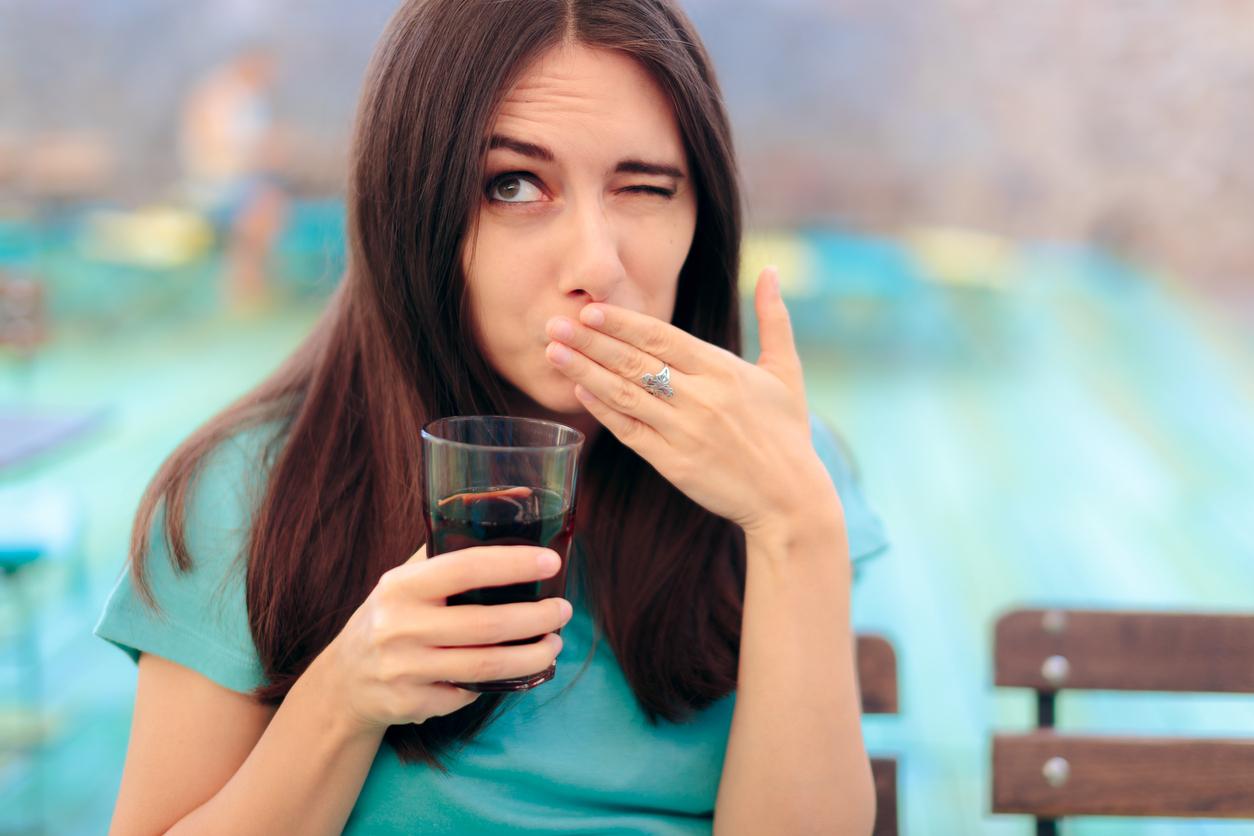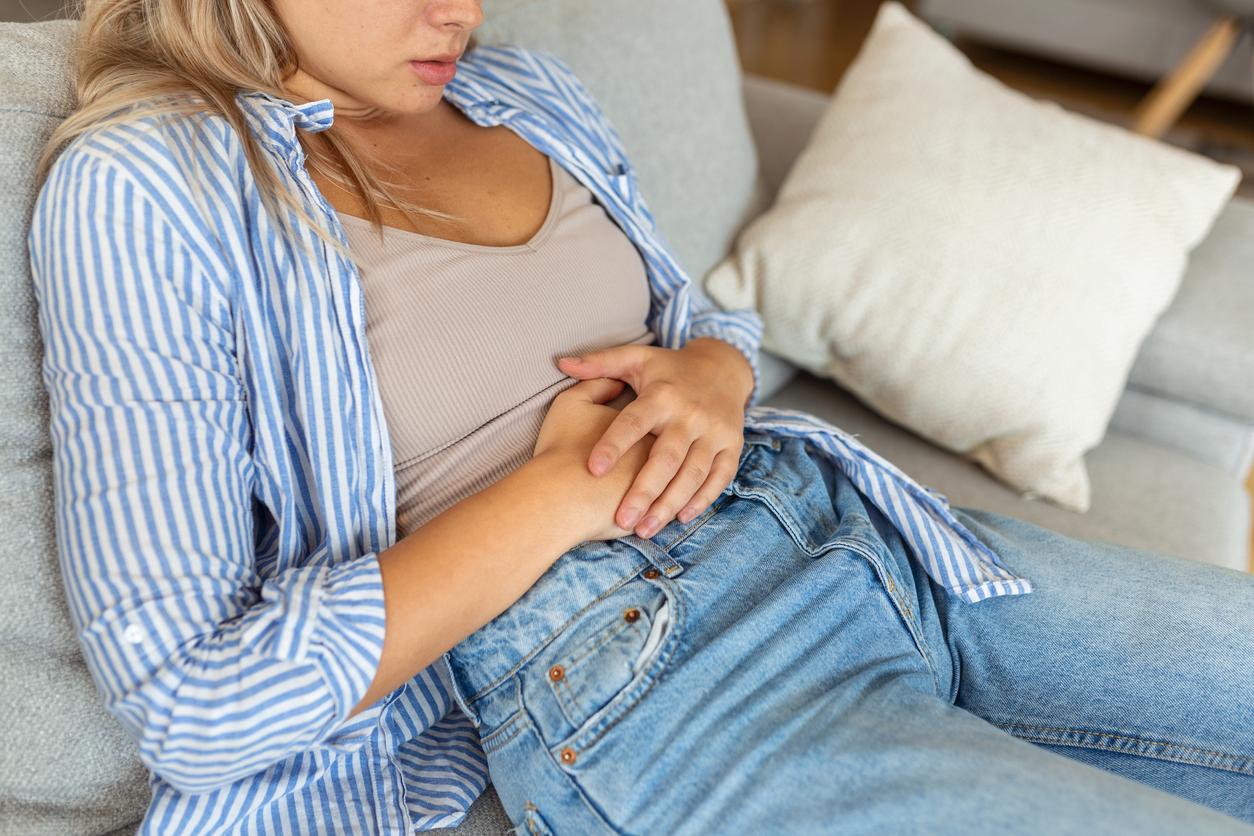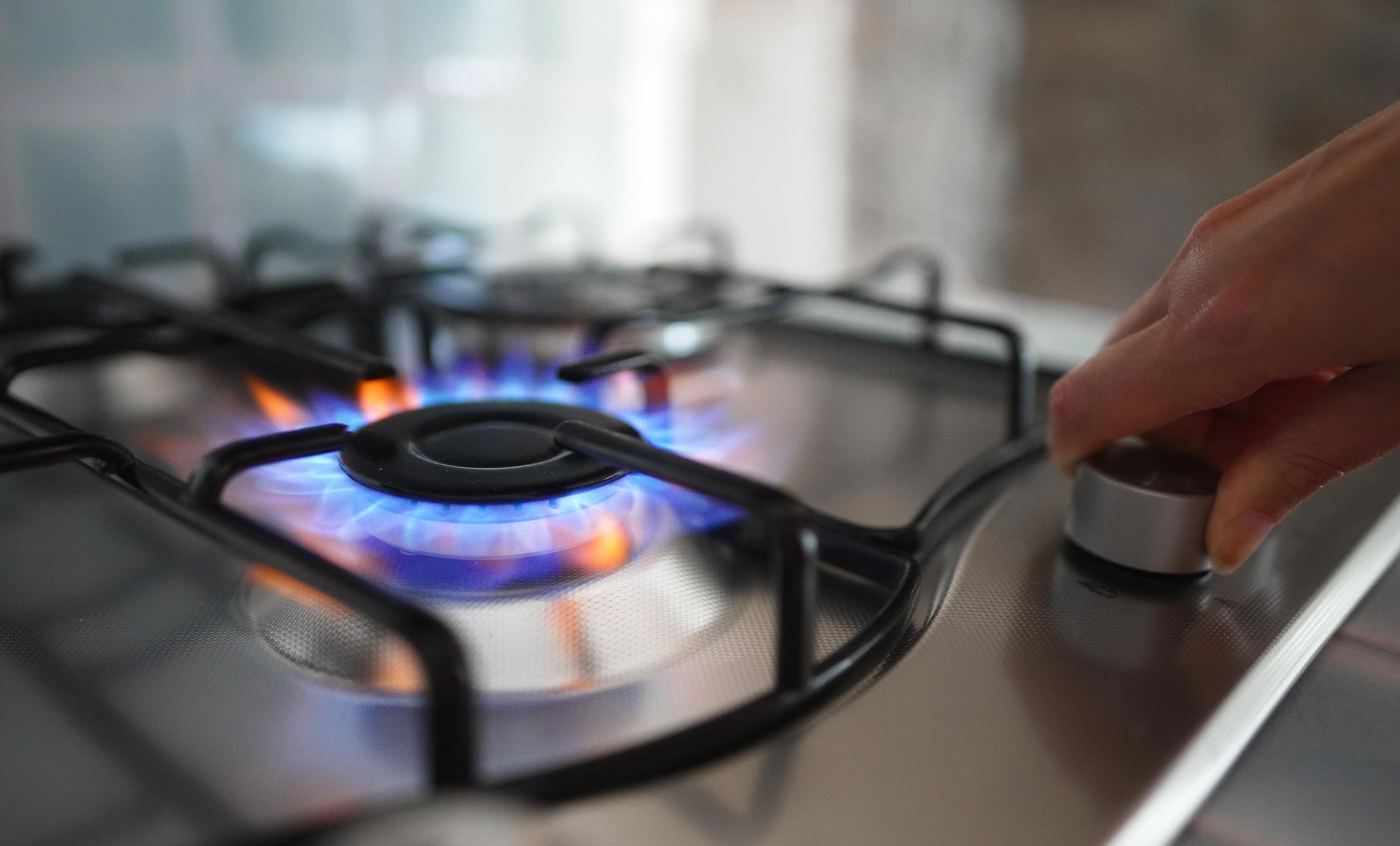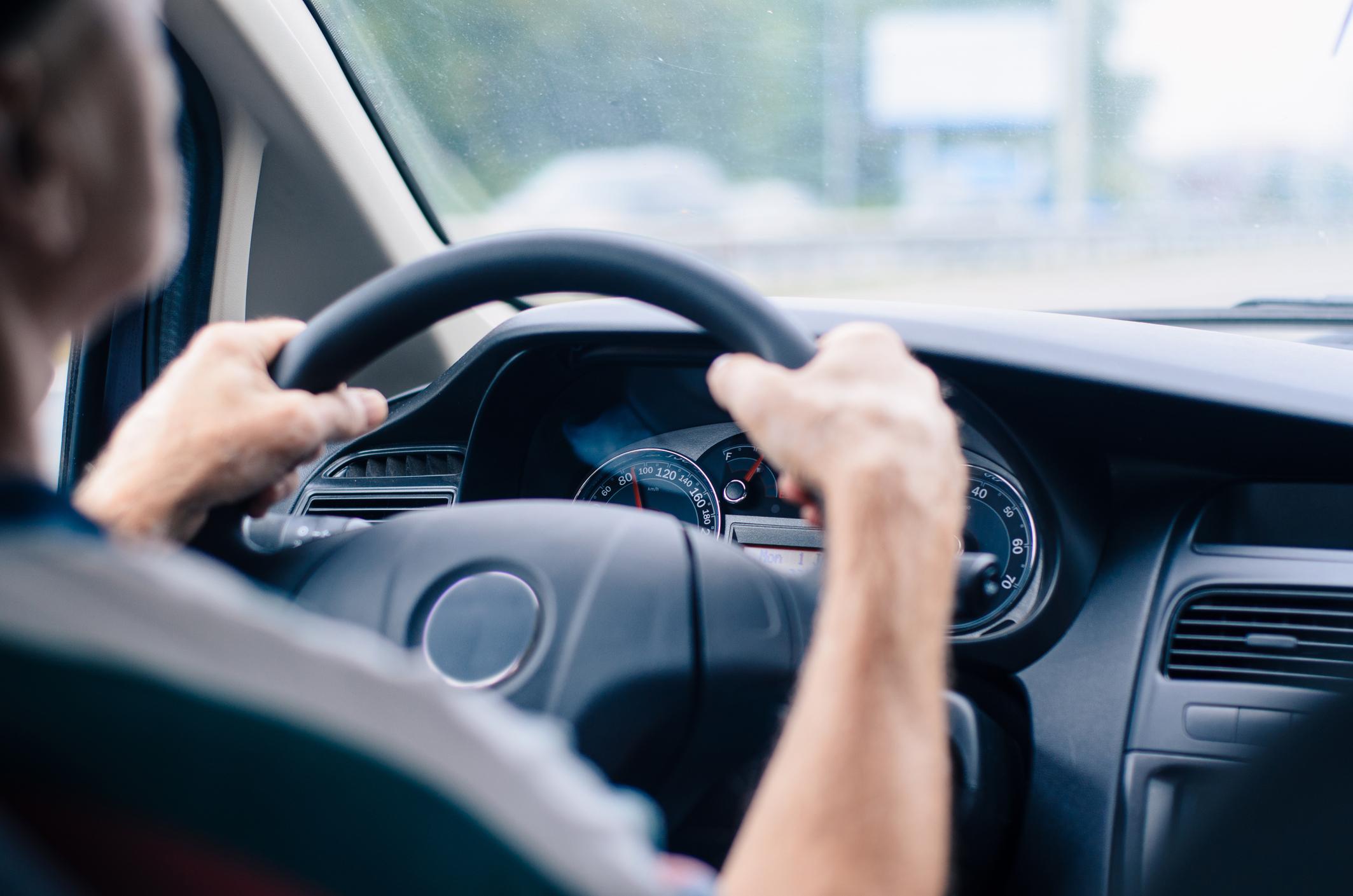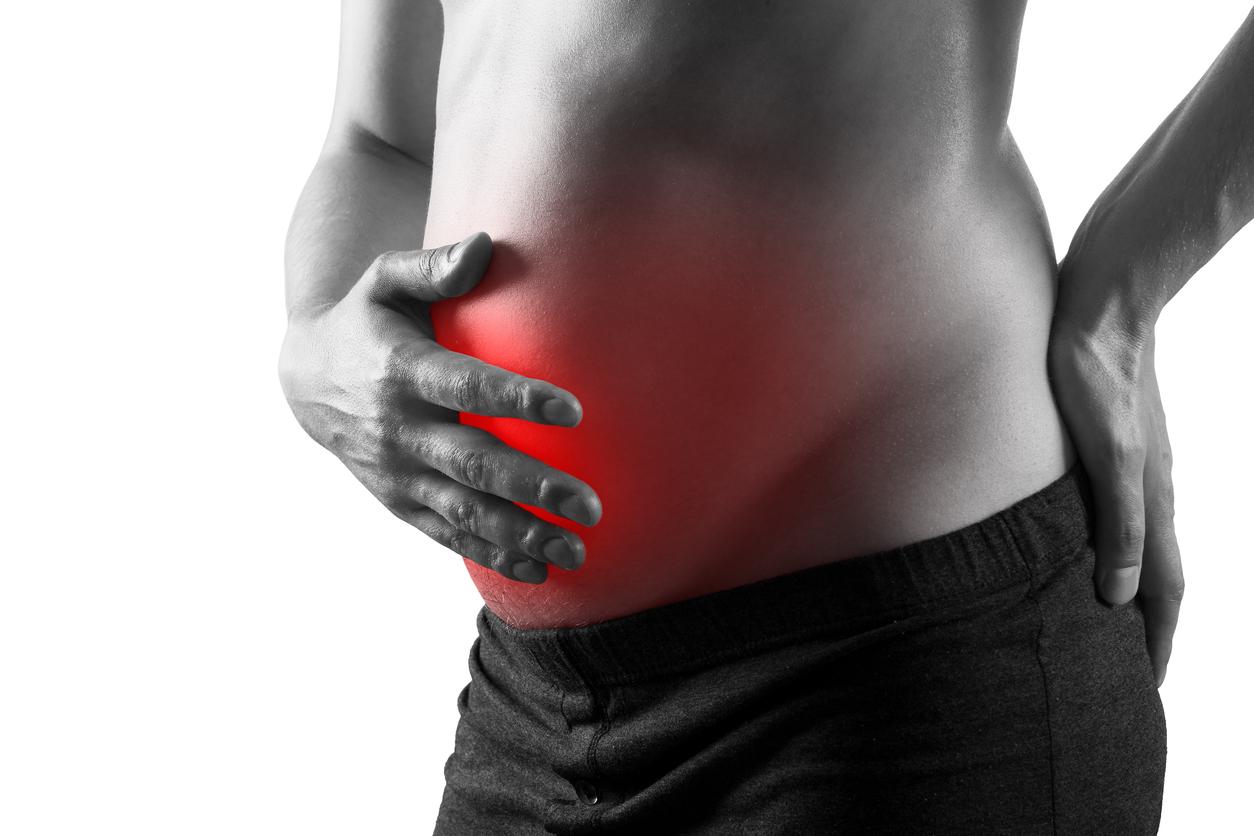Intestinal gas that builds up in the intestine produces bloating, which is uncomfortable and annoying. It can appear after a large meal, but can also be linked to other causes. Why Doctor takes stock.
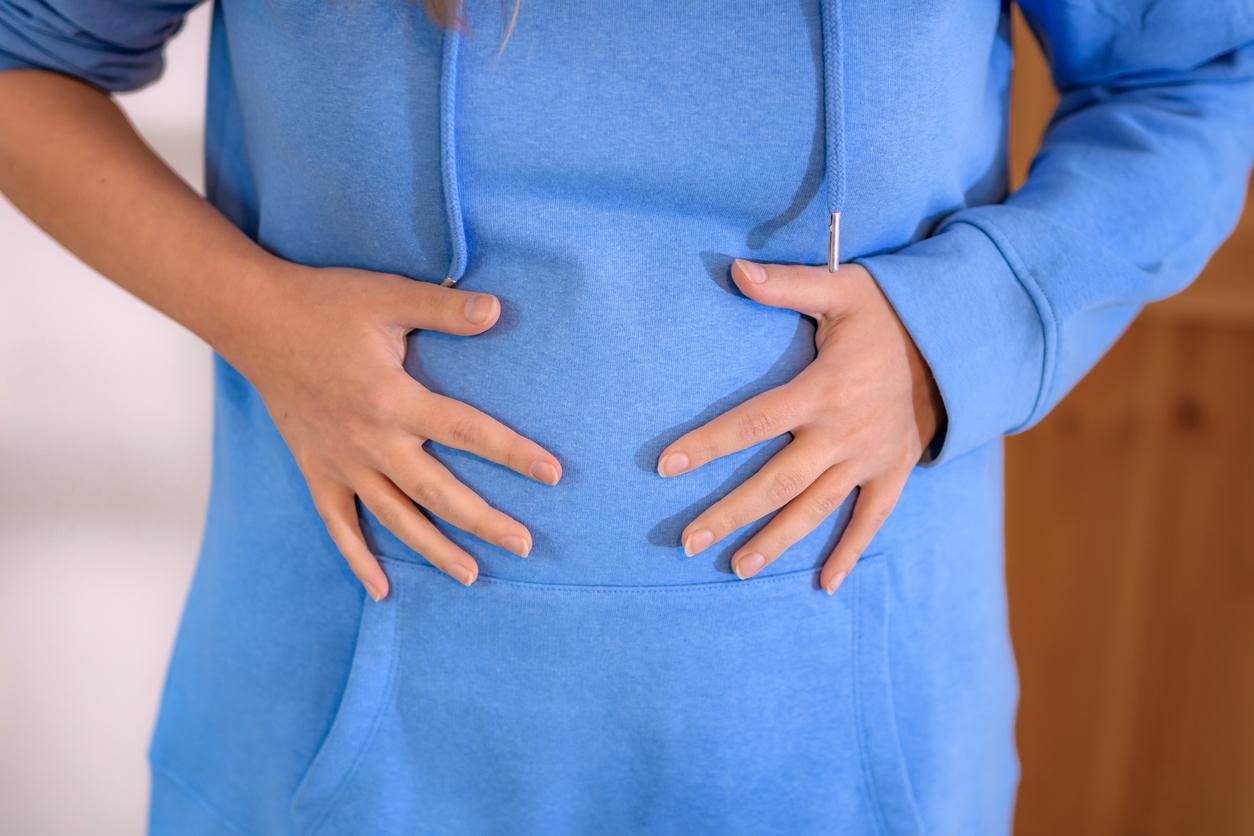
- Bloating is caused by intestinal gas building up in the intestine.
- Poor diet, aerophagia, stress and constipation can cause bloating.
- There is no real treatment but certain tips can limit the discomfort.
The feeling of a swollen belly is accompanied by frequent and unpleasant, even painful, bloating. This phenomenon, also known as “abdominal meteorism”, is caused by the accumulation of gas in the stomach or intestine. Excessive gas production can have different causes, mainly related to lifestyle.
Intestinal gas: poor diet to blame
A diet that is too fatty, too sweet or too spicy, but also the regular consumption of coffee, carbonated drinks or alcohol, can cause intestinal gas. In addition, certain foods rich in nitrogen such as beans, Brussels sprouts or starchy foods, are likely to cause bacteria to produce more intestinal gas. The breakdown of dietary fiber and proteins by bacteria is also responsible for the production of gas.
Additionally, some people have a lactase deficiency, making it impossible to digest lactose. This lactose intolerance can cause increased intestinal fermentation when consuming milk, which can irritate the intestine and produce bloating.
Bloating can be caused by aerophagia, stress and constipation
Aerophagia occurs when you eat or drink too quickly, or consume too much gum or carbonated drinks. We swallow too much air, which can cause gas in the stomach, digestive pain, hiccups, and belching.
Stress and anxiety can also affect the transit: by causing intestinal contractions, they cause bloating. Constipation is also one of the main causes of gas and bloating. Constipation causes the accumulation of stools in the large intestine prolonging and amplifying the fermentation process and therefore increasing the production of gas.
Finally, some inflammatory bowel diseases (Crohn’s disease, ulcerative colitis) and families of medications can cause intestinal problems as well as bloating. It should also be noted that during pregnancy, the uterus exerts pressure on the intestine, which disrupts transit and can also lead to flatulence.

3 tips against bloating
While there is no magic cure for bloating and gas, fortunately there are several treatments that can reduce discomfort and improve daily life.
Activated charcoal helps immobilize gases and toxins. Be careful, it can interfere with certain molecules and should therefore not be taken at the same time as other treatments.
Digestive dressings, usually based on clay, simethicone or dimeticone, are also recommended. Their “anti-foam” properties prevent the formation of gas.
Finally, you can turn to more natural remedies such as fennel or peppermint essential oils, but you must use them following the recommendations of a health professional.
If you suffer from frequent bloating or any other digestive disorder, ask your pharmacist for advice or consult your doctor.











